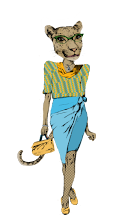In May, the International Trademark Organisation (INTA) published several country reports on the attitudes of Gen Z (for the purposes of the Report, those between the ages of 18 and 23) to buying and selling of counterfeits or fake products. The reports involve results from a survey undertaken in 10 countries: Nigeria, Argentina, Indonesia, China, Japan, Russia, India, United States, Italy and Mexico.
This post presents an overview of and thoughts on the report concerning Nigeria (the Report). The sample size for Nigeria's market is smaller than other markets due to limited sampling feasibility.
Here is an overview of the Report:
Background
The Report acknowledges the significance of Gen Z to the global consumer base. The selection of the 10 countries was based on factors such as population size of Gen Z in those countries, prevalence of counterfeit goods and economic development. See page 4. Further, the Report based the survey on the three characteristics that define Gen Z's generational identity and that influence the purchase behaviour of counterfeit products: individuality, morality and flexibility. See page 6.
In addition to these considerations, the Report also defined "fake products" as "an exact imitation of a brand's product and its packaging". See page 5.
Key findings
The Report presents the results from "Virtual Qualitative Phase" where respondents from Argentina, India, Russia and the United States were asked to complete 3 days' worth of activities online, and a second Quantitative Phase comprising of respondents from all the selected countries. This second phase was informed by findings from the virtual qualitative phase and required respondents to complete a 25-minute online survey. See page 5.
Here are some of the key findings on Nigeria:
- Income is a top determinant of whether a Nigerian Gen Zer will purchase fakes; with morality coming a close second. See page 21.
- Almost all the respondents (97%) have purchased fakes in the recent past.
- Clothes, shoes and accessories are the top-purchased fake products.
- Media personalities, social media influencers and brands' creators or employees, are Gen Z's top three credible sources for learning about fakes.
- In terms of knowledge of IPRs such as copyright and trademarks, respondents from all countries are above 75%. For Nigeria, respondents that knew about IPRs are in the bottom 3 countries with 79%. See pages 9 and 19.
- Nigerian Gen Zers top the list of those who have purchased fakes in the past year. See page 10.
- The global (the 10 countries) and national (Nigeria) average for number of fake food and beverages and personal care products seen by Gen Zers is low compared to other products. Page 11.
- The top 3 media for Gen Zers in terms of usage and awareness are Facebook, Instagram and YouTube. See pages 15 and 21.
- Only few (29%) are proud to show off a good fake to friends; but majority (95%) believe they deserve to know if the product they are buying is fake or genuine. See page 22.
What to think of all these?
- It is said that food, clothing and shelter are the most basic human needs. It therefore makes sense that clothing (apparel and shoes) is the most purchased fake product. Conversely, brands that will do well in Nigeria are likely to be brands that give a "high-end" feel but are reasonably priced.
- IP education needs to start early: Knowledge of IPRs at 79% of Gen Zers is low when it is considered that almost all the respondents have purchased fakes in the recent past. As McLean Sibanda suggested in the case of South Africa, IP education needs to start as early as primary school.
- The number of Gen Zers who have purchased fakes in the recent past is quite high at 97%. In fact, Nigeria ranked highest for this question. This raises the issue of availability. Are the fakes made within Nigeria or are they imports? What is the ratio of fakes made in Nigeria to imported fakes?
- The definition of "fakes" as exact imitation of a brand's product and its packaging when applied to food and beverages may need more context. Food scarcity is a huge problem in Nigeria and Africa generally. Whether fake food and beverages are safe or not may be a better determinant of purchase than the cost of the goods or the personal values of the Gen Zers. The Report bears this out in page 28 as majority rarely think of fakes when it comes to food products. For context, popular breakfast cereal brand, Kellog's started manufacturing some of its breakfast cereals in Nigeria in 2016. The Nigeria-made Kellog's cereals are cheaper and taste differently from the imported ones. Whether it tastes better or not, you will not read this on Afro-IP. Some opinions here.
- There is a correlation between the top media in terms of awareness and usage and the kinds of fake products most purchased. Clothes, shoes and accessories are very much available on Facebook, Instagram and YouTube. Beyond being social media sites, these media are also sales points. This raises the question of what advertising regulations exist and how consumer protection law works for Gen Z consumers (and other consumers).








